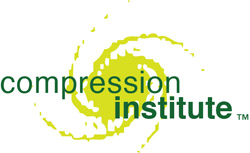
Why Do We Need to Compress?
Compression Has Two Meanings
1. We’re squeezing the earth, squeezing it hard in many ways. We extract more from it than it can give. We dump more back into earth than it can absorb. And we keep appropriating more space for human uses, leaving too littlefor the other life on earth. We utterly depend on all other life. Unless they are curbed, the trends of any of these multiple threats could extinguish humanity. Climate change is only one threat.
2. No technology can forever overpower the basic physics and biology of nature. Therefore we must squeeze our own excesses. However, we delude ourselves that we are winners. Accepting that we are the ultimate victims of our own success is tough.
“Compression” implies both these squeezes. We plain flat use too much stuff. We have to drastically compress our footprints. That’s far from fixing all problems, but it makes many of them smaller.
Why do we have great difficulty accepting this? Because the social and economic systems by which most of us now live assume unlimited human expansion and high consumption. If we don’t live this way, most of us aspire to. Our patterns of high consumption are hard to break. Obviously, we cannot forever double our use of stuff every 20 years or so on a planet of fixed size, but we don’t know how to break these patterns. They are baked into how we think.
Take away the assumption of expansion and we see the world very differently. What must be done varies a great deal from place to place and on local circumstances. The four guidelines to Compression Thinking are intended to help figure out what to do, wherever we are, and with whatever we have.
The term “Compression” looses the baggage of “Sustainability,” which implies that we can somehow keep expanding as usual and save the environment when we have time and money.
Of course, the term “compression” is used in many analogous senses, mechanical compression, data compression, etc.
